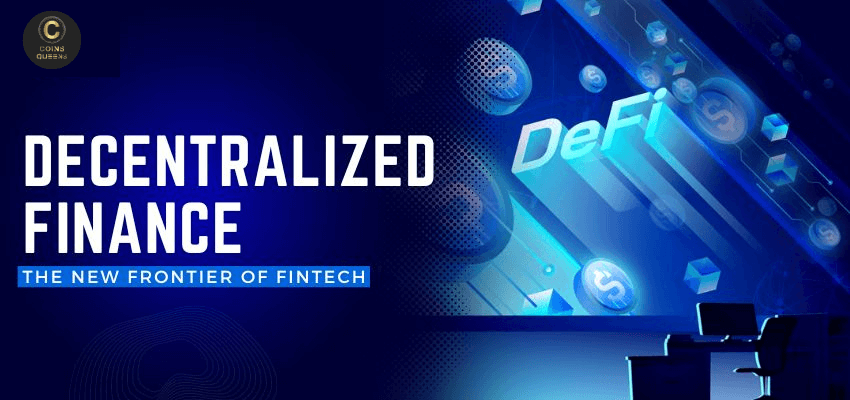Security and privacy continue to be the biggest problems in the evolving environment of blockchain technology and Decentralized Finance (DeFi). One of the most successful in solving these problems is the concept of zero knowledge proofs (ZKPs). This encryption method provides a way to increase the privacy and security of blockchain transactions without compromising transparency. In this blog, we will explore the Zero-knowledge proof in blockchain and examine their potential to transform digital interactions.
Zero knowledge VS Zero Trust
“Zero knowledge” refers to the encryption method known as “zero knowledge proof,” which exchanges data without disclosing any particulars. In contrast, a network security technique known as “zero trust” views all people and devices—whether they are connected to the network or not—as potential risks. Prior to granting access to resources, these standards mandate routine authentication and verification processes.
Zero Trust operates under the premise that anybody, even staff members, may be a threat, whether on purpose or accidentally. To fix this, a highly strict verification procedure is needed.
Through authentication, zero-knowledge may reach zero trust without disclosing personal data. People using the network of their company can, for example, use the zero-knowledge authentication, allowing employees to maintain confidentiality while accessing the company’s data without revealing their identities.
How Does Zero-Knowledge Proof Work?
Zero-knowledge proofs are techniques where through the use of computation, the truth of data presented is proven without succumbing to showing the actual data. They are used in projects like StarkNet on Ethereum, Polygon Zero, and Zk Sync.
For zero-knowledge proofs to work well, they must meet three important criteria:
1. Zero-Knowledge
The verifier cannot see the original data. They only know whether the statement about the data is true or not.
2. Soundness
The system cannot confirm false data as true. It has protections to ensure the prover cannot trick the verifier into believing a false statement.
3. Completeness
If the data is correct, the system always confirms the statement. If both parties are honest and the information is true, the proof is accepted.
Elements of a Zero-Knowledge Proof
A basic zero-knowledge proof includes three parts:
1. The Witness
This is the secret information. The prover uses this to create questions that only someone with the secret information can answer.
2. The Challenge
The verifier picks a question from the set for the prover to answer.
3. The Response
The prover answers the question. The verifier checks if the prover can access the secret information. The verifier asks multiple questions to reduce the chance of the prover faking knowledge.
This process enables the verifier to be sure that the prover possesses the secret without ever having to see the secret.
Types Of Zero-Knowledge Proofs
ZKPs allow one of the parties to convince the other that a certain value is known without disclosing the content of the value. There are two main types: Analyzing these definitions in relation to the context of this work, there are two main classification: Interactive And Non Interactive ZK.
Interactive Zero-Knowledge Proofs
In interactive zero-knowledge proofs communication is done between the prover and the verifier in turns. This interaction enables the verifier to be convinced that the said statement is actually true.
Non-Interactive Zero-Knowledge Proofs
Non-interactive zero-knowledge proofs are round-based and involve only one communication round. The prover sends information to an algorithm that generates a zero-knowledge proof. The verifier uses another algorithm to confirm the prover knowledge. Due to their convenience, many modern protocols use non-interactive ZKPs.
Examples Of Non-Interactive Zkps
ZK-SNARKs
Designated proving is fast, and verified proofs take little space; thus, this type of proof is named zero-knowledge succinct non-interactive arguments of knowledge (ZK-SNARKS). They use elliptical curves to produce cryptographic proofs, and this is a gas efficient way of doing so.
ZK-STARKs
ZK-STARKs are efficient because they entail minimal communication between the sender and the recipient of the information.
Bulletproofs
Bulletproofs offer succinct non-witness statements that allow a constant-size proof without a trusted setup. It is essentially important in private business involving the use of cryptocurrencies.
PLONK
Permutations over Lagrange bases for Oecumenical Non-interactive arguments of Knowledge (PLONK) can support many participants by using a universal trusted setup.
Why Do We Need Zero-Knowledge Proofs?
Security and Privacy
In Web3, transactions are anonymous, but transaction history is publicly accessible via blockchain. This setup affects privacy because anyone can track the source of the transaction. ZKP can solve this problem by verifying data without revealing personally identifiable information (PII). This complements anonymity and increases privacy, making online interactions and transactions safer.
Identity Verification
Historically, to confirm the identity of the specific person it was necessary to provide personal data such as SSN, phone number, or date of birth. ZKP enables an individual to prove one is who he/she claims to be without revealing any personal details. For instance, to provide evidence to counterclaim that one is of 18 years and above, one does not have to reveal his/her age and date of birth. This makes the authentication to be safe and only done within the curtain scope and crews.
Scalability
Decentralized networks such as the blockchain encounter scaling problems when a large bulk of data need to be stored. It enables the network to confirm transactions while not disclosing the detailed data thus limiting the data stored in the block chain. This not only improves performance but also makes the transaction faster, making the network larger.
Compliance
Organizations comply with AML, KYC and store users’ information in a central database that is hackable. ZKP provides a way for organizations to comply with these requirements without storing sensitive data. They can verify the necessary information while storing the user’s personal information.
Secret Transactions
In financial transactions, most transactions must be kept secret to protect the interests of both parties involved. ZKP allows financial analysis to be done without publishing the details, thus ensuring confidentiality. This is especially important in competitive markets where weak financial information can be misused if leaked.
Secure Sharing of Sensitive Information
Sometimes sensitive information may need to be shared without ever being disclosed. For example, in medical studies, researchers must demonstrate that the data set meets certain standards without revealing the actual data. ZKP allows the secure sharing of this information, which is necessary to maintain confidentiality in sensitive areas such as healthcare and research.
Fraud Prevention
ZKP can be used to prevent fraud in many applications. For example, in online transactions, buyers can prove they have sufficient funds without revealing their bank account. This reduces the risk of fraud while protecting the confidentiality of financial information.
Building trust in online communication
Trust is an important issue online. ZKP increases trust by allowing parties to verify each other’s claims without revealing sensitive information. This is especially useful in online business, social media, and other platforms where trust is important.
Conclusion
The potential for zero proof in blockchain technology is huge. As the need for privacy and security continues, ZKP may become the standard for many blockchain platforms. Additionally, advances in zero-proof technology such as zk-STARK make this process more efficient and easier to use. If interested in Zero-knowledge proof in blockchain development, then choose Coinsqueens to ensure security, and efficiency in your operations. At Coinsqueens, we focus on using Zero-knowledge proof in blockchain to provide a strong encryption tool that enables data verification without underlying data. This is important for applications that require high privacy standards, such as financial transactions, personal identification, and handling of confidential information. Our experts have in-depth understanding of Zero-knowledge proof in blockchain allowing us to provide customized solutions based on your specific needs. We embrace the latest advancements in ZKP to ensure your blockchain operation is not only secure but also efficient and effective. By choosing Coinsqueens you benefit from our experience, innovative approach and commitment to excellence.
Coinsqueens values customer collaboration, ensuring our solutions align with your business goals. Our team of experts works with you throughout the Blockchain Development process to provide ongoing support and updates to meet security changes. Partnering with Coinsqueens ensures that your blockchain infrastructure is protected with the latest ZKP technology, increasing trust and maintaining the highest standards of data privacy and fairness.













